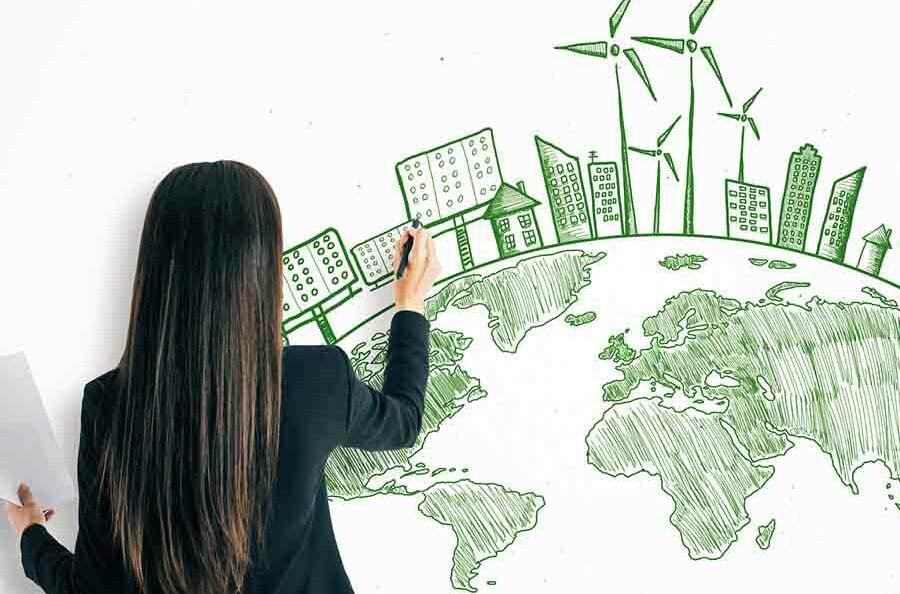The UAE’s founding father, Sheikh Zayed bin Sultan Al Nahyan, is rightly hailed for his progressive views on the role of women in society, and the need to create a sustainable future in which everyone is an active participant.
“For that reason, I am delighted that the theme for this year’s Emirati Women’s Day is ‘Inspiring Reality, Sustainable Future’ as it summarises so much of his views about equality, fairness, and long-term development,” said Nihal Shaikh, Assistant Director of Communications and Special Projects at startAD.
Thanks to his foresight, 72 percent of UAE college graduates are female with 56 percent of them graduating from STEM courses; the Federal National Council is equally represented by men and women, and women also make up 34 percent of the Emirates Mars Mission team and 80 percent of the team’s scientists.
These numbers matter for all sorts of self-evident reasons. Women are resilient and empathetic, which in today’s volatile world is vital to the sustainability of a business and a country. For example, countries with female leaders witnessed 40 percent fewer COVID-19 deaths than nations governed by men, perhaps indicating that gender equality in leadership teams is vital to creating balanced decision-making.
In business terms, it also counts. A 2019 report by McKinsey & Company revealed that companies in the top quartile for gender diversity on executive teams were 25 percent more likely to have above-average profitability than companies in the fourth quartile. Given 23,000 Emirati women-run projects worth more than 50 billion dirhams, this is vital in helping position the UAE as a world-leading center for talent, trade, and investment.
And it is important because, according to the United Nations, countries with higher percentages of women in parliament are more likely to adopt stricter climate change policies and are also more likely to consider their families and communities in decision-making processes –– which is crucial to producing holistic climate change solutions. This is good news for the UAE where more than half of STEM graduates from government universities are women. These scientists and innovators will have much to contribute to the development of new products and solutions that deliver sustainable growth.

From the ground up
I’ve certainly seen this in action in my work at startAD, the Abu Dhabi-based accelerator powered by Tamkeen and anchored at NYU Abu Dhabi. We have seen a marked growth in women entrepreneurs over the last few years across all age groups. To give just one example, our annual Academy for Women Entrepreneurs (AWE) this year included serval female-led start-ups with great ideas, including EcoBuild, which helps to build professionals and implement green building standards in the Middle East. In a rapidly changing world, increasing numbers of women are taking the plunge to become entrepreneurs with all the risks and rewards that a new venture brings.
It is also a huge privilege both for me and startAD to have been part of the team that compiled a book to celebrate the achievements of 51 remarkable Emirati women under the patronage of HH Sheikha Fatima bint Mubarak. As ‘Mother of the Nation’, Sheikha Fatima upholds the vision of Sheikh Zayed through her support for initiatives that encourage women to be active participants at all levels of society.
Marking 51 years of the UAE this December, and Emirati Women’s Day, the Emirati Women Achievers campaign showcases the success stories of real, home-grown role models. While these women may represent a small portion of the UAE’s vast number of determined, successful women, their inspiring stories are ones of resilience and hope for a sustainable future.
To give just three examples, Salwa Al-Zahmi is CEO and founder of the tech start-up SPL Co, head of the Emirates ICT Innovation Center’s software modernization quality project, and a scientist and inventor who has created practical solutions in technology. Latifa Bin-Haider is the founder of the Baytuki real estate investment platform and co-founder of Mental Health AE. Marwa Al-Mansoori is a founding partner of the United Women’s Network, a member of the Abu Dhabi Chamber of Commerce, and an advocate for women’s economic empowerment, who rightly says in the book “Women are the catalysts for long-term development”. These are the women changing our future for the better.
Leveling the playing field
Now we must build on this progress, by encouraging more participation. The Middle East & North Africa (MENA) region start-ups founded by women raised a total of $34.6 million in 2021, which is just 1.2 percent of the region’s venture capital funding according to data from Wamda. This is not just a regional problem given the comparable figures are two percent in the US and five percent in Europe.
While investors might point to a pipeline shortage of women-run start-ups, clearly this is the result of a complex range of factors that limit opportunities for women to enter this vital space. There is much work to be done to level the playing field – and rich rewards for the countries that do increase participation. A 2018 report of 350 US0-based start-ups revealed that those founded and cofounded by women generated 10 percent more in cumulative revenue over a five-year period than the businesses set up by men. Thus, if investors want to generate the best possible returns, it is vital that they invest in male and female-founded companies alike: in this sense, diversity really is the key to success.
Given the UAE’s track record in promoting gender equality over the past 51 years and the kinds of women I have been privileged to meet in my work, Emirati women will surely lead the UAE to great success in promoting entrepreneurship and innovation. And we will all benefit from their hard work.








